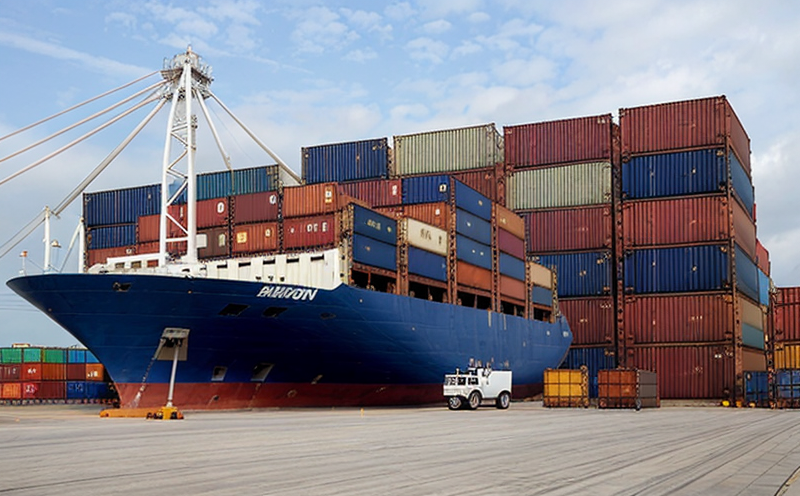Customs and Import/Export Regulations: A Comprehensive Guide
Importing and exporting goods across international borders can be a complex process, fraught with potential pitfalls and penalties for non-compliance. Understanding customs and import/export regulations is essential for businesses that engage in global trade to avoid costly errors, fines, and reputational damage.
Overview of Customs and Import/Export Regulations
Customs regulations govern the movement of goods across national borders, including imports, exports, and re-exports. These regulations are enforced by customs authorities responsible for collecting duties, taxes, and other fees on imported goods. Import/export regulations also aim to protect public health, safety, and security by controlling the entry and exit of prohibited or restricted items.
Import Regulations
Duty-free allowances: Most countries offer duty-free allowances for personal imports, which vary depending on the countrys trade agreements and tax laws. For example, in the United States, individuals can bring up to 800 worth of goods without paying duties.
Prohibited and restricted items: Certain goods are prohibited or restricted from importation due to safety, health, or security concerns. These include:
Firearms and ammunition
Explosives and fireworks
Narcotics and controlled substances
Counterfeit goods
Hazardous materials (e.g., toxic chemicals, pesticides)
Compliance with labeling and packaging regulations: Imported goods must comply with the countrys labeling and packaging requirements. This includes:
Clear product description and instructions for use
Warning labels for hazardous products
Compliance with environmental regulations (e.g., recyclability, biodegradability)
Export Regulations
Export licensing: Some countries require exporters to obtain licenses before shipping goods out of the country. These licenses may be required for specific goods or services, such as:
Controlled substances (e.g., narcotics, explosives)
Dual-use items (e.g., military technology, encryption software)
Cultural and historical artifacts
Compliance with export control regulations: Exporters must comply with regulations governing the transfer of sensitive technologies, including:
Arms embargoes
Nuclear and missile proliferation controls
Chemical and biological warfare restrictions
Compliance with country-specific requirements: Each country has its own set of export regulations. For example:
In the European Union, exporters must comply with the EUs dual-use regulation
In China, exporters must obtain an export license for certain goods (e.g., minerals, rare earth elements)
De Minimis Rule
The de minimis rule is a provision in international trade law that allows countries to waive duties on imports valued below a certain threshold. This threshold varies by country and type of good. For example:
In the United States, goods worth up to 800 are eligible for duty-free treatment under the de minimis rule.
In Canada, the de minimis value is CAD 20 (approximately USD 15).
Free Trade Agreements (FTAs)
FTAs are agreements between two or more countries that reduce or eliminate trade barriers. These agreements often establish rules of origin, which determine whether goods qualify for preferential treatment under the agreement. Some key aspects of FTAs include:
Rules of origin: Goods must meet specific criteria to qualify for FTA benefits, such as:
Content requirements (e.g., minimum percentage of locally sourced materials)
Processing requirements (e.g., assembly or manufacturing in an FTA partner country)
Tariff elimination: FTAs often eliminate duties on certain goods, making them cheaper for consumers.
Non-tariff barriers: FTAs may address non-tariff barriers to trade, such as:
Regulatory differences
Standards and certification requirements
Additional Requirements
Commercial invoices: Exporters must provide commercial invoices that include essential information, such as:
Sellers name and address
Buyers name and address
Description of goods
Quantity and value
Certificates of origin: Importers may require certificates of origin to verify the country of manufacture or production.
Insurance requirements: Goods in transit often require insurance coverage against loss, damage, or theft.
QA Section
Q: What is the difference between a customs declaration and an import/export permit?
A: A customs declaration is a document submitted to customs authorities at the time of importation or exportation, providing details about the goods being transported. An import/export permit, on the other hand, is a license issued by the relevant government agency, allowing the importer or exporter to bring specific goods into or out of the country.
Q: Can I ship goods using a third-party logistics provider (3PL)?
A: Yes, but ensure that your 3PL partner complies with all customs regulations and laws. You may need to provide additional documentation or information to facilitate customs clearance.
Q: What happens if I accidentally import prohibited or restricted goods?
A: The consequences will depend on the specific circumstances. In some cases, you may be subject to fines, penalties, or even confiscation of the goods. Its essential to familiarize yourself with the regulations and consult with a trade expert if youre unsure about compliance.
Q: Can I export services instead of physical goods?
A: Yes, but service exports are often subject to different regulations than physical goods. Ensure that you understand any specific requirements or restrictions for exporting your particular type of service.
Q: What is the role of a customs broker in international trade?
A: A customs broker acts as an intermediary between the importer/exporter and the customs authorities, facilitating compliance with customs regulations and laws. They may assist with preparing documents, paying duties, and resolving any issues that arise during the import or export process.
Q: Can I use electronic data interchange (EDI) to submit customs declarations?
A: Yes, many countries allow EDI submission of customs declarations, which can streamline the clearance process and reduce paperwork. Consult with your local customs authority or trade expert to determine whether EDI is an option in your case.
In conclusion, understanding customs and import/export regulations is crucial for businesses that engage in global trade. By familiarizing yourself with the various requirements, including those related to duty-free allowances, prohibited and restricted items, export licensing, and free trade agreements, you can minimize the risk of non-compliance and ensure a smoother import/export process.

































